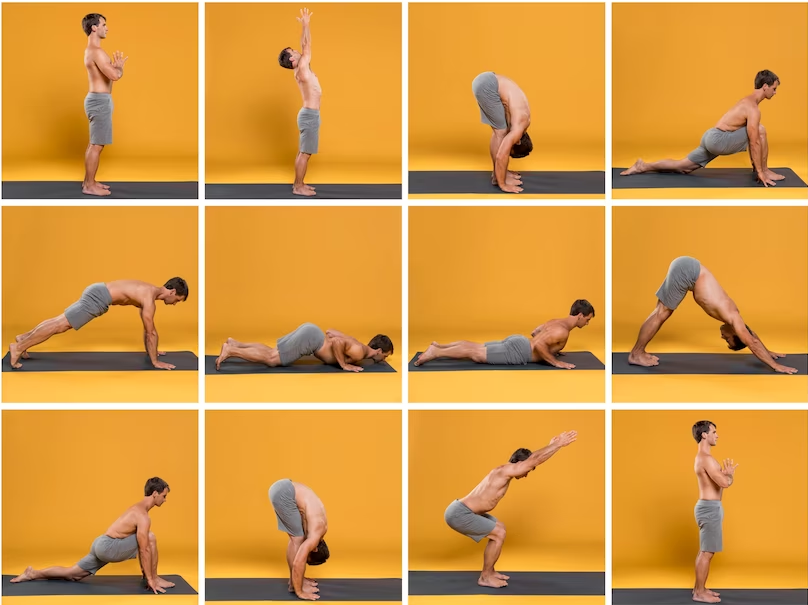Yoga therapy is gaining widespread recognition as a complementary approach to health and wellness. As interest in yoga therapy grows, so does the demand for qualified professionals who can deliver effective interventions. Central to becoming a proficient yoga therapist is a comprehensive understanding of the human body, mind, and the therapeutic applications of yoga practices. In this article, we delve into the curriculum of yoga therapy courses, exploring the diverse range of subjects covered and the essential knowledge and skills acquired by students pursuing this path.
The Foundations of Yoga Therapy:
- Historical Context: Tracing the origins of yoga therapy and its evolution over centuries.
- Philosophical Underpinnings: Understanding the philosophical frameworks that guide yoga therapy practices.
- Principles of Ayurveda: Exploring the connection between yoga therapy and Ayurveda, the ancient Indian system of medicine.
Anatomy and Physiology:
- Human Anatomy: Detailed study of the musculoskeletal, respiratory, circulatory, nervous, and other systems of the body.
- Physiology: Understanding the functioning of bodily systems and their relevance to yoga therapy interventions.
- Biomechanics: Exploring the mechanics of movement and alignment in yoga poses to prevent injury and enhance therapeutic benefits.
Therapeutic Modalities:
- Asanas (Yoga Poses): Learning the therapeutic applications of various yoga poses for addressing physical and psychological conditions.
- Pranayama (Breath Control): Understanding the role of breathwork in promoting relaxation, stress reduction, and overall well-being.
- Meditation and Mindfulness: Incorporating mindfulness techniques and meditation practices into yoga therapy sessions to cultivate mental clarity and emotional balance.
- Yoga Nidra: Exploring the deep relaxation technique of Yoga Nidra for stress relief and healing.
Yoga for Special Populations:
- Prenatal and Postnatal Yoga: Adapting yoga practices to support women during pregnancy and the postpartum period.
- Yoga for Seniors: Tailoring yoga interventions to meet the needs of older adults, focusing on mobility, balance, and joint health.
- Yoga for Mental Health: Addressing anxiety, depression, trauma, and other mental health concerns through yoga therapy techniques.
- Yoga for Chronic Conditions: Implementing yoga therapy protocols for managing chronic pain, arthritis, cardiovascular diseases, and other long-term health issues.
Therapeutic Relationship and Communication:
- Client-Centered Approach: Developing skills in active listening, empathy, and building rapport with clients.
- Ethical Considerations: Understanding the professional responsibilities and ethical guidelines in the practice of yoga therapy.
- Effective Communication: Learning to communicate complex concepts in a clear and accessible manner to clients from diverse backgrounds.
Practical Applications and Case Studies:
- Internship and Practicum: Hands-on experience working with clients under the supervision of experienced yoga therapists.
- Case Studies: Analyzing real-life cases to understand the assessment, intervention, and evaluation process in yoga therapy.
- Integration of Skills: Applying theoretical knowledge to develop individualized treatment plans and monitor progress over time.
Business and Professional Development:
- Marketing and Promotion: Strategies for establishing a yoga therapy practice, including branding, networking, and client outreach.
- Legal and Regulatory Considerations: Navigating licensing requirements, insurance coverage, and professional associations relevant to yoga therapy.
- Continuing Education: Recognizing the importance of ongoing learning and professional development to stay updated on the latest research and best practices in yoga therapy.
Conclusion:
Yoga therapy courses offer a comprehensive education that blends traditional yogic principles with modern scientific understanding. By equipping students with a deep understanding of anatomy, physiology, therapeutic modalities, and professional skills, these programs prepare future yoga therapists to serve diverse populations and address a wide range of health concerns. As the field continues to evolve, ongoing research and education will play a crucial role in advancing the effectiveness and accessibility of yoga therapy as a holistic approach to healing and wellness.
